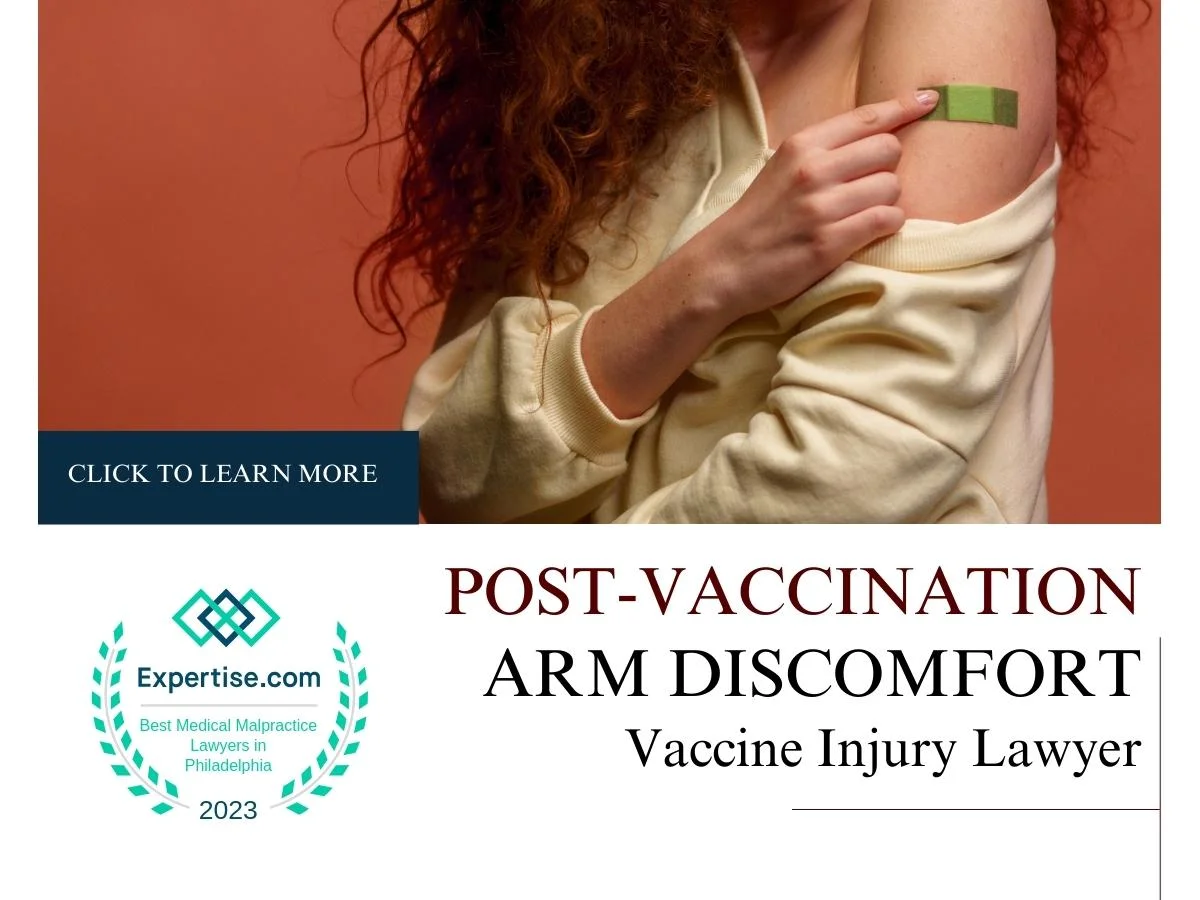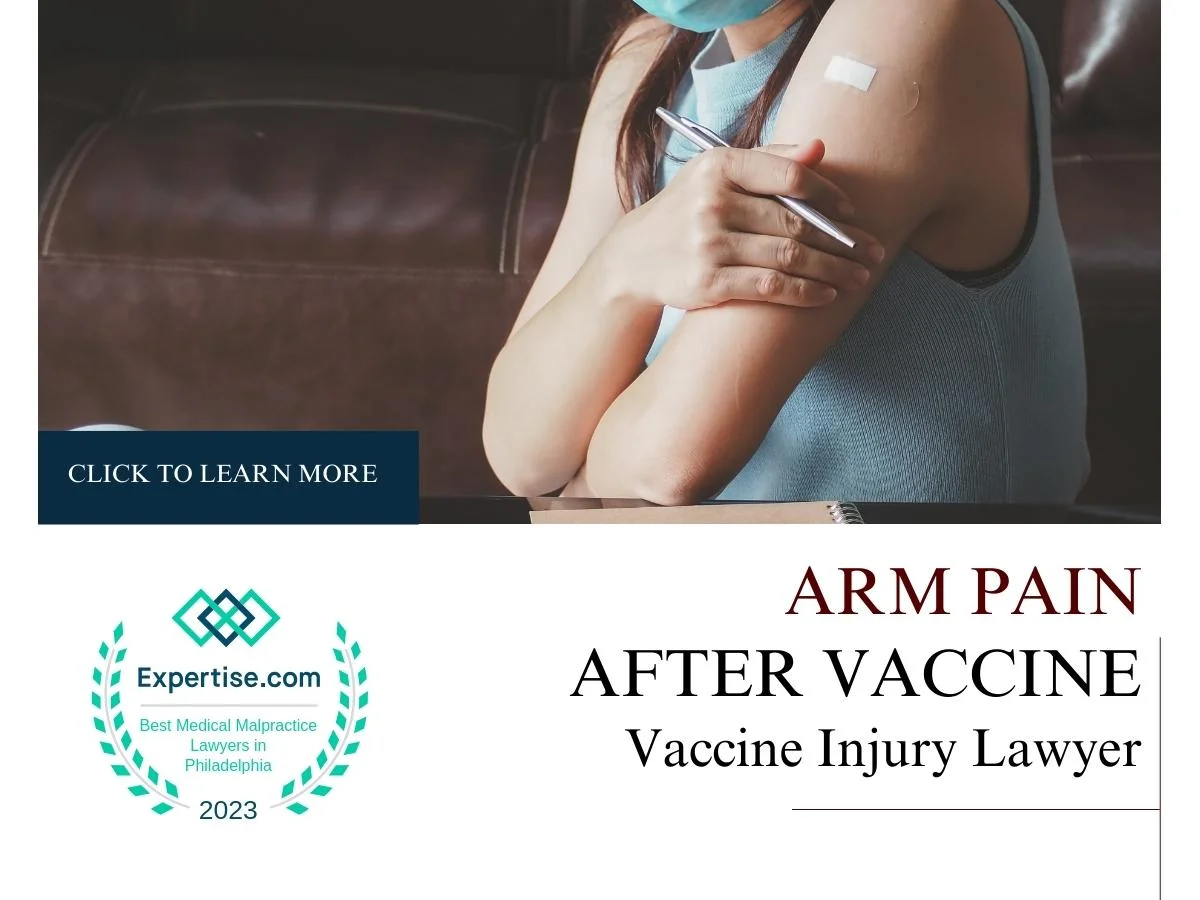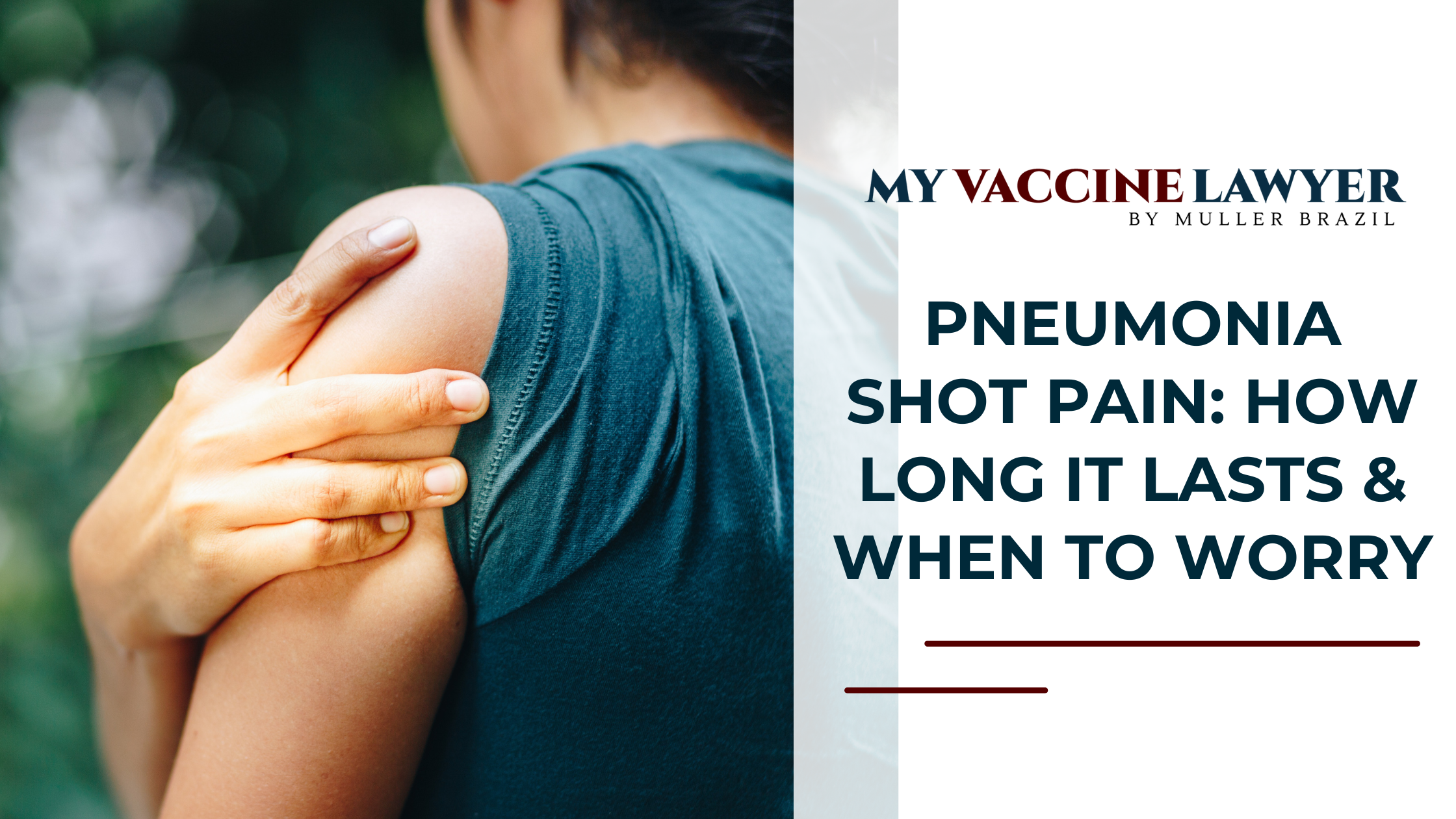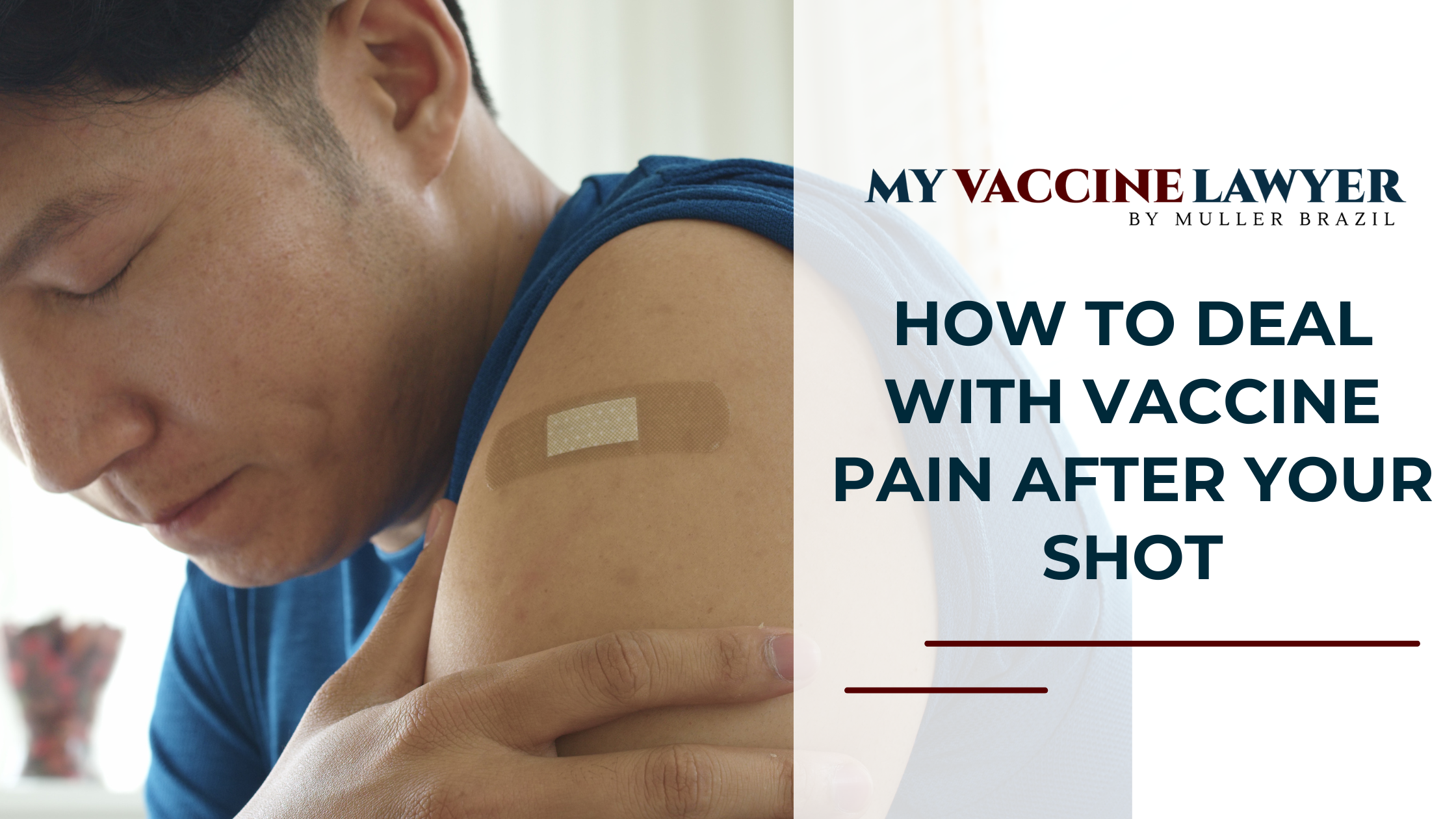Arm Hurts After Vaccine? Causes and Relief Tips
If you're feeling arm pain after a vaccine, it's common and usually not serious, often caused by your body's reaction to the vaccine which causes...
6 min read
Vaccine Injury Law Resources / Arm Pain / How to Deal with Vaccine Pain After Your Shot
 Paul Brazil
:
Feb 6, 2025 9:02:00 AM
Paul Brazil
:
Feb 6, 2025 9:02:00 AM
For most adults and older children, the soreness lessens within a few days. But for some, arm pain can linger longer than expected or feel more severe. Knowing what causes vaccine-related pain and how to reduce swelling and discomfort can help make the recovery process easier.
If your arm hurts after a vaccination, you’re not alone. Arm soreness is a common reaction caused by both the injection process and your immune system’s response to the vaccine.
When a shot is given, the needle pierces the arm muscle (deltoid) to deliver a small amount of the vaccine. This can cause:
Vaccines work by stimulating the immune system to recognize and fight viruses. This can lead to temporary discomfort, including:
Some people experience more pain than others due to:
While arm soreness after a vaccination is common, some patients report that certain preparation techniques help lessen discomfort. Research suggests that factors like stress levels, muscle relaxation, and hydration may play a role in how the body responds to a shot.
Many people feel uneasy before getting vaccinated, and studies suggest that stress and muscle tension can make the injection site feel more sore afterward. Some patients find that:
The way a shot is given may also contribute to pain levels. Patients sometimes report that:
Some patients say that staying hydrated and getting enough sleep before a vaccination helps their body recover faster. While everyone’s experience is different, research suggests that proper immune system function relies on adequate hydration, rest, and nutrition.
Take Control of Your Injury Today
For most patients, post-vaccine arm soreness is temporary and fades within a few days. However, if your arm hurts more than expected, there are several ways to reduce pain and ease discomfort.
Applying ice or a cold compress to the injection site may help lessen swelling and tenderness. Many patients find that:
While it may feel natural to rest a sore arm, gentle movement may actually help reduce stiffness and increase blood flow to the area. Some patients report that:
For patients experiencing more pain, medications like acetaminophen (Tylenol) or ibuprofen (Advil) may help with pain relief and inflammation. However, it’s always best to speak with a doctor or physician before taking any medication, especially if you have underlying health concerns.
While cold therapy is useful in the first few hours after a vaccination, some patients find that applying heat later on helps relax the muscle.
Beyond traditional pain relief methods, some patients find that alternative techniques can help lessen arm soreness and make recovery more comfortable.
While resting the arm can seem like the best approach, light movement often helps prevent stiffness. Many patients find that:
While these techniques are not a substitute for medical treatment, some patients report that alternative pain management strategies help them recover more comfortably after a vaccination.
Taking care of your arm muscle after a vaccination can help reduce soreness and speed up recovery. While some tenderness is normal, the way you move and rest your arm in the hours and days after a shot can make a difference.
While most patients recover from post-vaccine soreness within a few days, lingering pain or mobility issues may signal something more serious. If symptoms persist beyond a week or worsen over time, consulting a physician is recommended.
While arm soreness after a vaccination is common for most people, certain groups, such as breastfeeding parents, children, and individuals receiving multiple vaccines may need to take additional factors into account.
For most people, arm soreness after a vaccination is normal and fades within a few days. Simple pain relief methods such as cold compresses, light movement, and over-the-counter medications can help reduce swelling and discomfort. However, not all post-vaccine pain is minor.
If pain lasts longer than expected, worsens over time, or affects mobility, it may indicate a more serious issue. In rare cases, vaccine-related injuries such as Shoulder Injury Related to Vaccine Administration (SIRVA) can cause prolonged pain, weakness, or limited range of motion in the affected arm.
While vaccines work to protect against serious diseases, some patients experience long-term complications from improper vaccine administration. At My Vaccine Lawyer, we help individuals who have suffered vaccine-related injuries obtain the compensation they deserve through the Vaccine Injury Compensation Program (VICP).
If you are suffering from persistent pain, weakness, or mobility issues after a vaccine, you may be eligible for compensation through the Vaccine Injury Compensation Program (VICP). Our team has helped thousands of clients navigate the claims process and recover the compensation they deserve.
Call (800) 229-7704 or email info@myvaccinelawyer.com to schedule a free consultation.
You don’t have to go through this alone. Let My Vaccine Lawyer fight for you.
Paul Brazil is a native of Dunmore, Pennsylvania and a graduate of Dunmore High School. For his undergraduate education, he attended Bloomsburg University where he majored in political science. He then went on to earn his JD from Widener University School of Law. Following graduation from law school, Mr. Brazil worked at a large Philadelphia civil defense firm where he litigated workers’ compensation claims and Heart and Lung Act cases. In 2012, he joined with his coworker Max Muller to form Muller Brazil.

If you're feeling arm pain after a vaccine, it's common and usually not serious, often caused by your body's reaction to the vaccine which causes...
 Read More
Read More

Getting a vaccine is a routine part of staying healthy, but that doesn’t mean it’s always comfortable. If you've recently received a pneumonia shot,...
